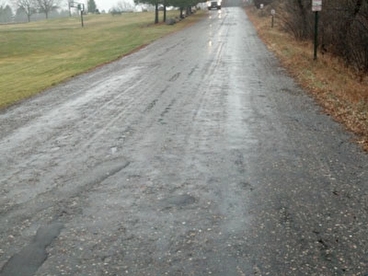
Current Practices for Lightly Surfaced Roads

Date and Location
Not currently scheduled.
About the Workshop
Minnesota has thousands of miles of gravel and dirt-surfaced roads, and most of them are maintained by counties and townships. One method of preserving the surface (for dust control, stabilization, or to maintain grade) is to apply a light surface treatment.
A light surface treatment (LST), also known as a bituminous surface treatment, is a thin layer of liquid asphalt covered with a layer of aggregate with a total application that is 1.5 inches thick or less. Using LSTs is relatively new, and this training will offer information about how to select the right treatment and successfully apply it.
Topics Covered
- Introductions and workshop overview
- Introduction to lightly surfaced roads (LSR)
- Keys to a successful LSR
- Examples of LSR failures
- LSR treatment options
- Questions/discussion
Who Should Attend
This workshop is intended for county engineering staff/design engineers as well as larger townships and counties with gravel roads that are starting to develop higher-than-average daily traffic rates.
Course Instructor
Dan Wegman, P.E., Braun Intertec, has worked with DOTs and local government agencies in several states with pavement rehabilitation and preventive maintenance strategies. As a former MnDOT construction and bituminous engineer, and with over a dozen years working as a private-sector material supplier, Wegman provides technical insight with respect to materials, construction, and implementation.
Credit
To the best of our knowledge, this course/activity meets the continuing education requirements for 3.0 PDHs as outlined in Minnesota Statute 326.107. Learn more about continuing education for professionals from the Minnesota Board of AELSLAGID.
Sponsors
This workshop is presented by Minnesota LTAP at the Center for Transportation Studies, University of Minnesota. Minnesota LTAP is sponsored by the Minnesota Local Road Research Board (LRRB) and the Federal Highway Administration (FHWA). This course is subsidized through funding from LRRB and FHWA.